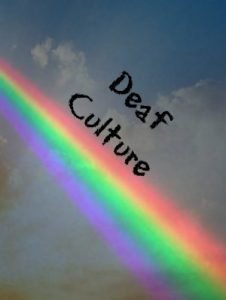We’re adding a new segment to Scriblerians book reviews–reviews on books written by the Scriblerians! Several of us have been very busy in the publishing world, and it’s time to crow a little over our successes.

Cynthia is one of the original Scriblerians, initiating a small critique group for yet-to-be-published young adult/middle grade authors. She is now multi-published. The Other Side of Freedom is an award-winning historical fiction, and 3 Things to Forget is the fourth and final book of her Bird Face series from Write Integrity Press. Read on to see what goes on in Cynthia’s writing process.
- What was the seed of this story? What got it started?
My main character, half-Cajun Wendy Robichaud, finally makes it to Alaska to see her dear friends Mrs. V and Sam. Readers particularly wanted to know more about Sam and how his friendship with Wendy would develop.
In Alaska, Wendy thinks she’s left behind the problems resulting from her mistakes in Louisiana and wants to forget them. But starting the summer at her friend Sam’s house and volunteering with Alaska Wildlife Conservation bring not only strange surroundings but also strangers into her life. And those strangers have a secret involving a troubled girl who threatens Wendy’s friendship with Sam.
As Wendy struggles to understand the Alaskans she meets and gets to know, she must also say good-bye to old friends she might never see again and decide whether to forget the past or to learn from it.
NOTE: While 3 Things to Forget concludes one season in Wendy’s life, each book in the series is easily read as a stand-alone.
2. In your writing process, what was the balance between research and your own life experiences?
This novel required more research than the previous Bird Face books. I had traveled to the Anchorage area of Alaska years ago, but I did not visit the Wildlife Conservation Center that is featured in this story. I also sought help with depicting my Jewish characters. I had worked among deaf adults, so I had some knowledge of deaf culture, but I read other novels with deaf teen characters to try my best to portray them realistically.
3. Did you help design the cover or have any input regarding its concept?
No, I didn’t, but I liked this design right away when my publisher showed it to me. I offered more input for the previous Bird Face covers.
4. How do you come up with names for your characters?
Sometimes I use a name I’ve heard only once, but it has stayed with me. I use place names I’m familiar with for people and people names for places. Sometimes I use a surname for a first name or the other way around. I’ve even created character names that don’t seem to exist anywhere. I really admire the clever character names other authors create.
5. If you could meet one of your characters in real life, which one would it be and what would you do together?
It would have to be my main character, Wendy! I think we’d have fun riding bicycles or hiking through woods and trying to identify plants and animals.
6. Are you a plotter or a pantser? What works for you in that modality?
A little of both. I start with how I want the story to begin and to end. Then I create the most exciting middle I can think of for my main character’s predicament. My first drafts tend to be sparse, perhaps because I see so much in my mind’s eye but forget to write it all down for the reader. I’ve learned to expand my descriptions and my characters’ reactions. After the first two books, I was able to let my character start telling me what she’d do next!
7. What do you hope readers take away from your book?
That change is inevitable. Change in relationships, in family dynamics, in resources, and sometimes in physical environment. But God gives us the power to adapt, to find creative solutions, and to find acceptance and love.

Cynthia writes for tweens and teens to show them how wonderful, powerful, and valuable they are. Her interests are American Sign Language, Cajun and Italian culture, growing herbs, and rescuing dogs. She also enjoys studying the complex history of the friendly southern U.S., where she resides with her husband.





